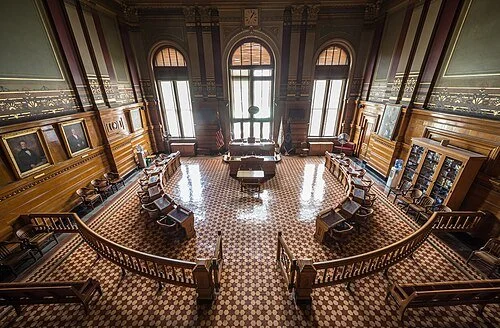Some very nice places if you can afford them
Providence neighborhoods
Providence City Council chambers.
Adapted from Robert Whitcomb’s “Digital Diary,’’ in GoLocal24.com
So Providence property taxes are going up this year. No surprise. And, especially with federal cutbacks, they might have to go up more in the next few years. The city last raised property taxes in fiscal 2023. Since then, of course, prices have continued to rise.
But Mayor Brett Smiley’s administration wants to mitigate the property-tax hike a bit by raising revenue on such things as parking and towing fines, animal mistreatment, liquor-license transfers and valet licenses. I suspect that one attraction of boosting parking fines is that the majority of the violators would be out-of-towners, not Providence voters.
Of course, locals and others will complain. But it seems to me that many user taxes are quite fair because they reflect personal decisions (and sometimes personal negligence). Still, I’m ambivalent about fees attached to doing business, such as liquor-license transfers and valet licenses. It can be mighty expensive to have a business in Providence.
Something that tends to be forgotten in the understandable complaints about sky-high housing prices in Providence. Whatever the city’s many flaws, lots of people like living here and many would like to move here, especially affluent folks eying the leafy East Side. That’s a reason that housing prices are so high, along with far too little housing construction.
Much of Providence’s tax revenue goes to its public schools – 37 percent for fiscal 2025. This leads to the thought, which I’ve expressed before, that its schools might be far better run if all of tiny Rhode Island’s 36 (!!) local school districts were abolished and replaced by regional districts or even just one statewide district to be managed by the best public-education executives the state could find. This could both improve the quality of schooling in communities, such as Providence, with many disadvantaged students, and save taxpayers a lot of money through economies of scale and elimination of duplicated services.
Of course this would mean a huge change in the Ocean State’s tax structure, wherein the state’s income and sales taxes would pay for most of public education. As it is, property taxes pay for over half of public-school costs.

